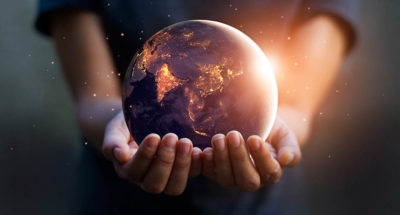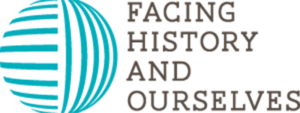
Understanding Universe of Obligation
Students discuss and reflect upon the term “universe of obligation”, and then explore their own personal sense of responsibility towards others along with that of an identity group to which they belong.

Students discuss and reflect upon the term “universe of obligation”, and then explore their own personal sense of responsibility towards others along with that of an identity group to which they belong.
Students will:
Facing History and Ourselves is a nonprofit international educational and professional development organization. By integrating the study of history, literature, and human behavior with ethical decision-making and innovative teaching strategies, Facing History enables secondary school teachers to promote students’ historical understanding, critical thinking, and social-emotional learning. As students explore the complexities of history, and make connections to current events, they reflect on the choices they confront today and consider how they can make a difference.

Click here for an overview of this lesson.
Facing History and Ourselves is a nonprofit international educational and professional development organization. By integrating the study of history, literature, and human behavior with ethical decision-making and innovative teaching strategies, Facing History enables secondary school teachers to promote students’ historical understanding, critical thinking, and social-emotional learning. As students explore the complexities of history, and make connections to current events, they reflect on the choices they confront today and consider how they can make a difference. www.facinghistory.org

How did students respond to this practice? Do you notice a shift in the conversation about caring for others, whether they are friends, schoolmates, families, communities, or society? If so, describe the shift?
A group of researchers recently developed “The Identification With All Humanity” scale (IWAH) that assesses the degree to which someone identifies with “all humans everywhere.” “Identifying” includes things like feeling love toward, feeling similar to, and believing in, independent of how much they identify with people in their own community and country.
The researchers found that people who score high in IWAH are more concerned about global issues such as combating world hunger and addressing human rights violations, even when controlling for dispositional empathy and moral concern. High scorers also valued ingroup and outgroup lives more equally than low scorers. (Values placed on lives was measured by having participants choose between policies that pit lives in one country against economic loss or gain in the other and comparing those policy preferences.)
It’s an exciting time to live in this world, as it grows smaller and the divisions start to disappear. And yet, according to researchers, empathy—a critical quality that helps humans feel connected and compassionate towards one another—may be on the decline in students.
Cultivating students’ global citizenship builds not only their knowledge and skills, but also their interest in and empathy for people and issues outside their everyday lives. As our schools, workforce, and communities become more diverse, encouraging students to enlarge their circles of concern—reaching out to others in friendship and understanding—help us to create a kinder, more compassionate, and equitable world—one in which our “universe of obligation” is greatly expanded.

Do you want to dive deeper into the science behind our GGIE practices? Enroll in one of our online courses for educators!
Comments